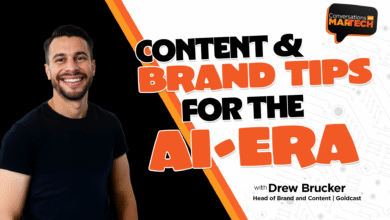Ethical AI Content Creation: A Practical Guide

▼ Summary
– Microsoft’s AI-generated Ottawa travel guide mistakenly recommended a food bank as a vacation stop, highlighting its lack of contextual understanding.
– Tiffany Holbrook advocates for vetting AI content thoroughly, checking for accuracy, context, and brand alignment rather than just reviewing it superficially.
– Tom and Tiffany address issues like AI slop, flops, and shadow AI, stressing the need for a governed, purposeful AI strategy.
A recent incident involving an AI-generated travel guide for Ottawa highlights the critical need for ethical oversight in automated content creation. Microsoft’s AI system produced a recommendation that listed a local food bank as a tourist attraction, underscoring how algorithms can assemble text without grasping real-world context or sensitivity. According to Tom Neff, a principal product manager at Brightspot, this case perfectly illustrates AI’s current limitations: it can summarize and suggest, but it lacks the human discernment to recognize when a suggestion is inappropriate or offensive.
During a recent Content Marketing Institute webinar titled “What Does Ethical Content Creation Look Like in an AI World,” Neff and his colleague Tiffany Holbrook, director of product marketing, explored the pitfalls of relying solely on artificial intelligence. Holbrook emphasized that simply reviewing AI-generated material is not enough, organizations must adopt a thorough vetting process. She explained that vetting goes beyond a quick skim; it involves checking for accuracy, context, appropriateness, and tone to ensure the content aligns with brand values and audience expectations.
The discussion also touched on broader issues like “AI slop”, poor-quality, automated content, and “AI washing,” where companies overstate their use of artificial intelligence. They pointed to “shadow AI,” the unsanctioned use of AI tools by employees, as a sign that many organizations lack a clear, governed AI strategy. To counter these risks, Neff advocates for a “human-first” approach to AI. This means building an AI practice focused not just on compliance, but on preserving what makes your content authentic and ensuring your audience feels respected and understood.
For those looking to implement these principles, the full webinar offers actionable strategies and deeper insights. It provides guidance on developing a purposeful, ethical framework for AI content creation, one that safeguards brand integrity while meeting audience needs. Additional resources, including upcoming webinars and related content, are available for professionals eager to strengthen their expertise in content marketing and responsible AI adoption.
(Source: Content Marketing Institute)





